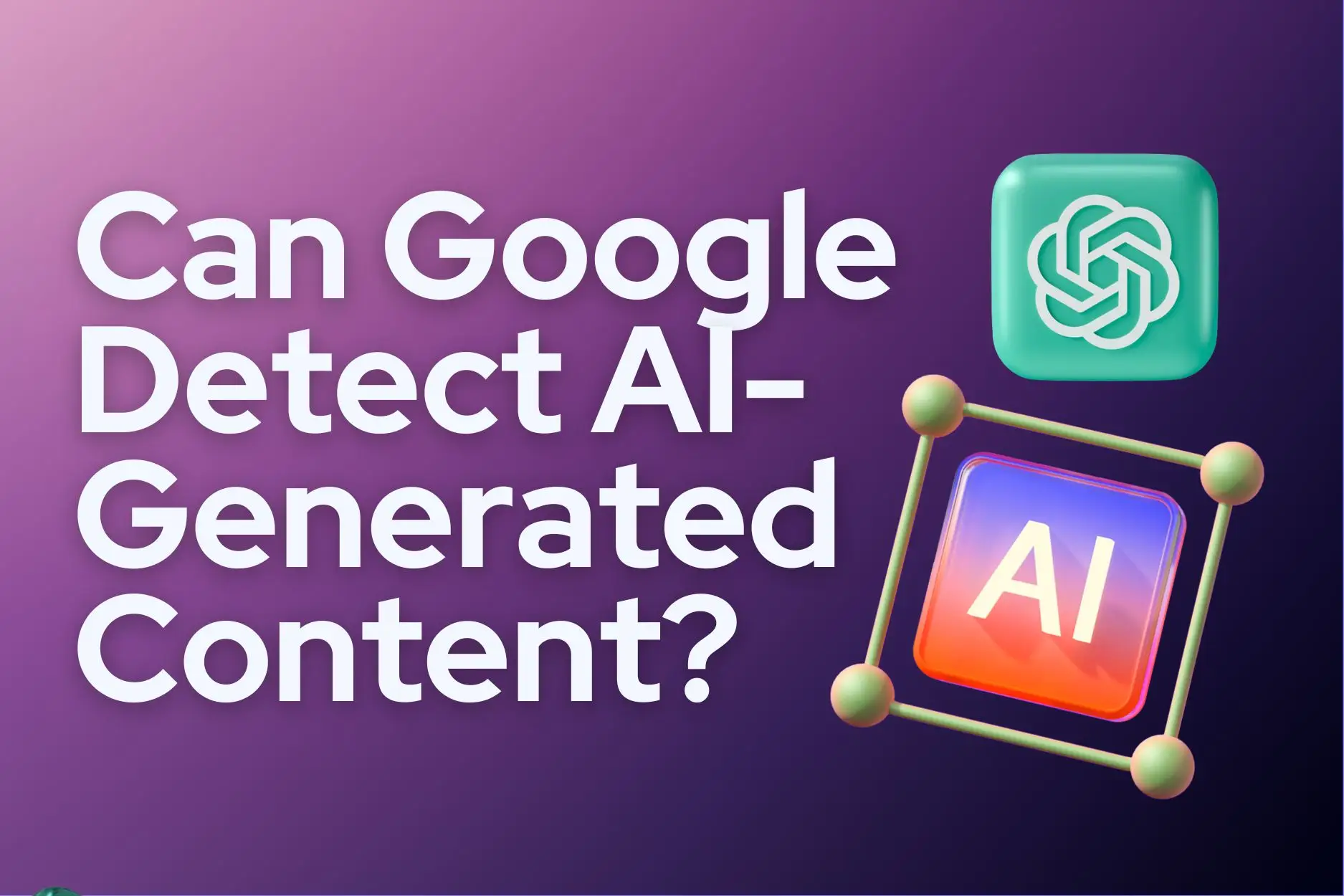
As the capabilities of artificial intelligence (AI) continue to advance, the question arises: Can Google detect AI-generated content? With the rise of AI-powered content generators and language models, there is growing concern about the impact of automated content creation on search engine rankings and the integrity of online information. In this blog, we will delve into the intricacies of AI-generated content and explore whether Google can distinguish between human-created and AI-generated content.
Understanding AI-Generated Content:
AI-generated content refers to text or other forms of content that are produced by automated systems using machine learning algorithms. These systems are trained on vast amounts of data, enabling them to generate content that mimics human language patterns and styles. From article writing to product descriptions, AI-powered content generators can churn out text at a remarkable speed.
Google’s Approach to Detecting AI-Generated Content:
Google’s algorithms are designed to assess the quality and relevance of web content to deliver the best search results to users. While Google has not explicitly disclosed its methods for detecting AI-generated content, it constantly evolves its algorithms to stay ahead of manipulative tactics. Here are some factors that may contribute to Google’s ability to detect AI-generated content:
1. Natural Language Processing (NLP):
Google utilizes advanced NLP techniques to analyze the structure, grammar, and context of content. AI-generated content may exhibit patterns and anomalies that differ from human-created content, which can be identified through NLP analysis.
2. Content Evaluation:
Google’s algorithms assess various aspects of content, including relevance, coherence, and value to users. Human-created content tends to have a depth of understanding, logical flow, and a unique perspective that can be challenging for AI-generated content to replicate consistently.
3. User Engagement Metrics:
Google considers user engagement signals like click-through rates, bounce rates, and time spent on page to determine the quality and relevance of content. If AI-generated content fails to engage users or provides a poor user experience, it may indicate to Google that the content is not authentic.
4. Quality Signals:
Google prioritizes content that demonstrates expertise, authoritativeness, and trustworthiness (E-A-T). AI-generated content may lack the authenticity and real-world experience that human-created content can provide, potentially affecting its perceived quality.
Tips for Creating Authentic Content:
While AI-generated content may have applications, creating authentic and valuable content can greatly benefit your online presence. Here are some tips to enhance the authenticity of your content:
1. Add Unique Insights: Share your expertise, personal experiences, and insights in your content to provide a distinct perspective that AI-generated content cannot replicate.
2. Develop Engaging Stories: Incorporate storytelling techniques to captivate your audience and create an emotional connection. Stories have the power to engage readers and make your content memorable.
3. Showcase Expertise: Demonstrate your expertise through well-researched content, case studies, and expert opinions. Establish yourself as a thought leader in your industry.
4. Encourage User Interaction: Foster engagement with your audience through comments, social media discussions, and interactive elements on your website. This signals to Google that your content is valued and relevant.
While the capabilities of AI-generated content continue to advance, Google’s algorithms are becoming more sophisticated in detecting manipulative tactics. The search engine giant prioritizes authentic, valuable content that resonates with users. By creating unique, insightful, and engaging content, you can stand out online and establish a trustworthy presence. As an Edmonton SEO company, we understand the importance of authentic content in achieving search visibility. Contact us today to learn more about our SEO services and how we can help optimize your content strategy.
What does E-A-T stand for?
E-A-T stands for Expertise, Authoritativeness, and Trustworthiness. It is a concept introduced by Google as a quality guideline for assessing the credibility and value of web content. Google considers these factors when evaluating the quality and relevance of content to provide the best search results to users. Websites and content that demonstrate expertise in their subject matter, establish authoritativeness as a reliable source, and convey trustworthiness in terms of accurate information and ethical practices are more likely to rank higher in search engine results.
1. What is the importance of E-A-T in SEO?
E-A-T is crucial in SEO because it helps search engines like Google assess the quality and credibility of web content. By demonstrating expertise, authoritativeness, and trustworthiness, your website can improve its chances of ranking higher in search results and attracting more organic traffic. Users are more likely to trust and engage with content that exhibits E-A-T, leading to better visibility and potential business growth.
2. How can I improve E-A-T for my website?
To enhance E-A-T for your website, focus on creating high-quality, well-researched content that showcases your expertise in your industry or niche. Establish your authority by providing accurate information, citing reliable sources, and featuring expert contributors or testimonials. Build trust by ensuring your website is secure, transparent about your business practices, and responsive to user feedback. Incorporating E-A-T principles into your SEO strategy can positively impact your website’s visibility and reputation.
3. Does E-A-T apply to all types of websites?
Yes, E-A-T is relevant to all types of websites, although its application may vary depending on the nature of the content and industry. For example, websites that provide health, financial, or legal information are expected to demonstrate a higher level of E-A-T due to the potential impact on users’ well-being or important decisions. However, all websites can benefit from showcasing expertise, establishing authority, and building trust to enhance their credibility and user experience.
Remember, prioritizing E-A-T in your SEO efforts can contribute to long-term success by earning the trust of both search engines and your target audience.







